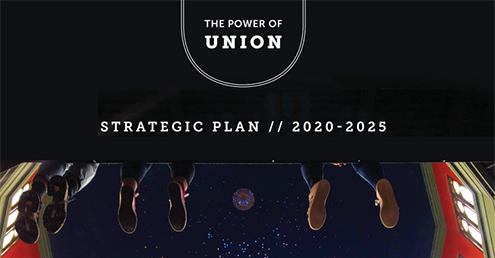Dear Campus Community Member:
As was widely expected, the U.S. Supreme Court today issued decisions in two cases that will impact the ability of colleges and universities to explicitly consider a student’s race when making admissions decisions.
In summary, the court’s rulings held that admissions processes at Harvard and the University of North Carolina violate the equal protection clause of the 14th Amendment to the U.S. Constitution and, as a result, the universities are no longer allowed to explicitly consider race when making admissions decisions. Over the coming days and weeks, we will learn more details about what is and is not permitted.
This ruling will affect Union because - like many selective higher education institutions - Union is race conscious in its admissions process. We currently take race into account, among myriad other factors, when making decisions about which exceptional applicants to admit.
This decision will require that we examine our recruiting and decision-making protocols to ensure that we remain compliant with the law. That work already has begun and will intensify once we have a full understanding of the Supreme Court’s decision.
What I can say now in full confidence, as I shared in my recent piece in the Chicago Tribune, is that Union’s commitment to cultivating a community where diversity, equity, inclusion, and belonging are treasured is unwavering. Indeed, we have much to gain by creating a community that is broadly diverse and welcoming in every sense of the word.
Here are just a few examples of how that manifests itself:
- Creating a community where individuals of different races, economic backgrounds, political views, experiences, sexual orientations and more come together exposes our students to the type of environment they will enter after college, preparing them to lead across multiple tomorrows.
- Interacting with people who don’t share your views, experience or backgrounds forces us all to confront our preconceived notions and to reflect on our fundamental beliefs. It’s part of learning to be comfortable being uncomfortable, and it often results in individuals broadening their own belief systems. At the very least, it promotes better understanding of our differences.
- Diverse teams tend to solve problems more effectively and creatively than homogeneous teams – more viewpoints lead to better solutions. It’s something the best companies have known for decades.
In short, living and learning as a member of a diverse community make us all better.
As I said, I remain confident that Union will continue to be a place where students of color will be made to feel welcome, and where they will thrive. But make no mistake this Supreme Court decision will make our work more challenging.
That’s disappointing on several levels, not the least of which is the fact that the debate on affirmative action – at least as it relates to institutions such as Union – is based on the false premise that in order to level the playing field for students of color other, more accomplished, students are being left out.
This is simply not true at Union. Every student who receives an offer of admission to this college has the intellectual capacity and educational background necessary for success, or they wouldn’t have been admitted.
Some may have better high school grades or test scores than others, while some others may be better athletes. Still, others bring artistic or musical talents that enrich our community, while many offer life experiences that contribute to the richness of our community.
In the case of our students of color, their racial and ethnic backgrounds add valuable perspective to a community that is still predominantly white. But it is far from the only reason they were asked to join us – as their performance in the classroom and involvement in the campus community consistently bears out.
The only thing many of these students lack is the type of access to opportunities such as a Union education that many of our students take for granted. That access will become more difficult given the Supreme Court’s ruling, but our commitment to ensuring that deserving students – regardless of race – have a full and fair opportunity to earn a Union College education remains steadfast.
Best regards,
David

